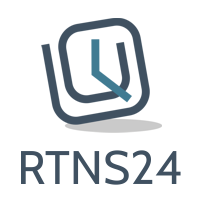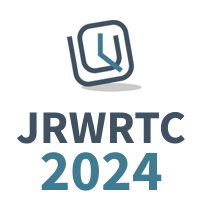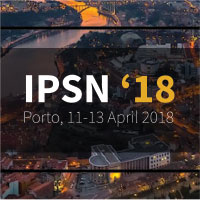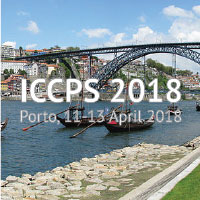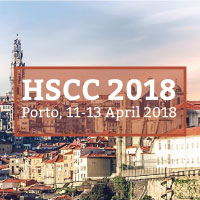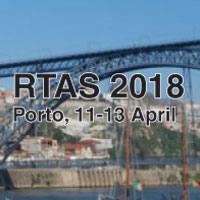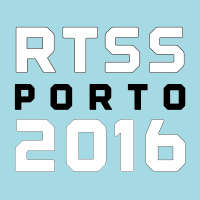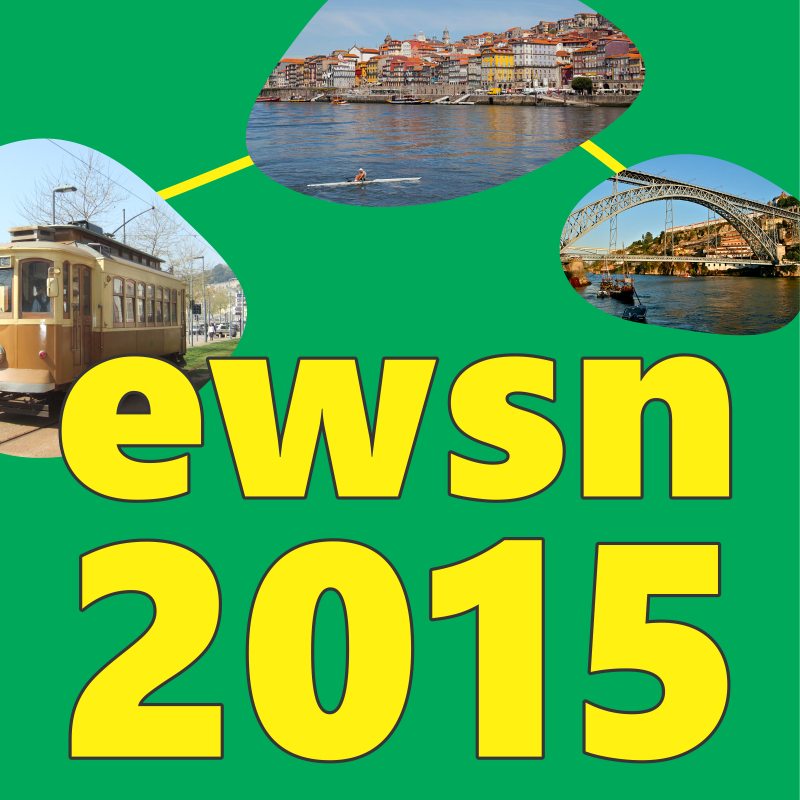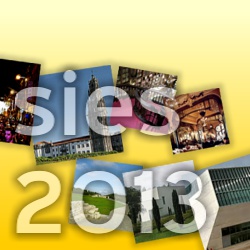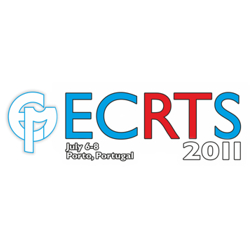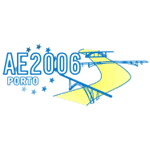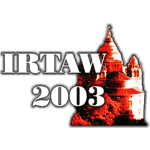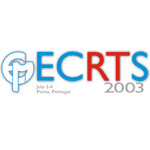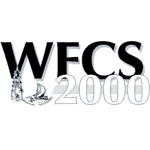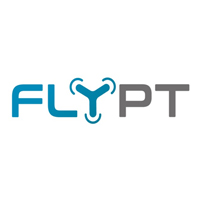 Ongoing Project:
Ongoing Project:
FLY-PT
Mobilize the national aviation industry to transform the future urban air transport
Find out more...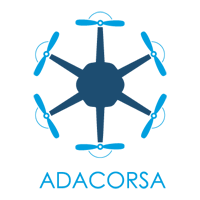 Ongoing Project:
Ongoing Project:
ADACORSA
Airborne data collection on resilient system architectures
Find out more... Ongoing Project:
Ongoing Project:
VALU3S
Verification and Validation of Automated Systems’ Safety and Security
Find out more...
Gallery of Hosted Conferencesmore
Latest Newsmore
Facts About CISTER
Research without borders
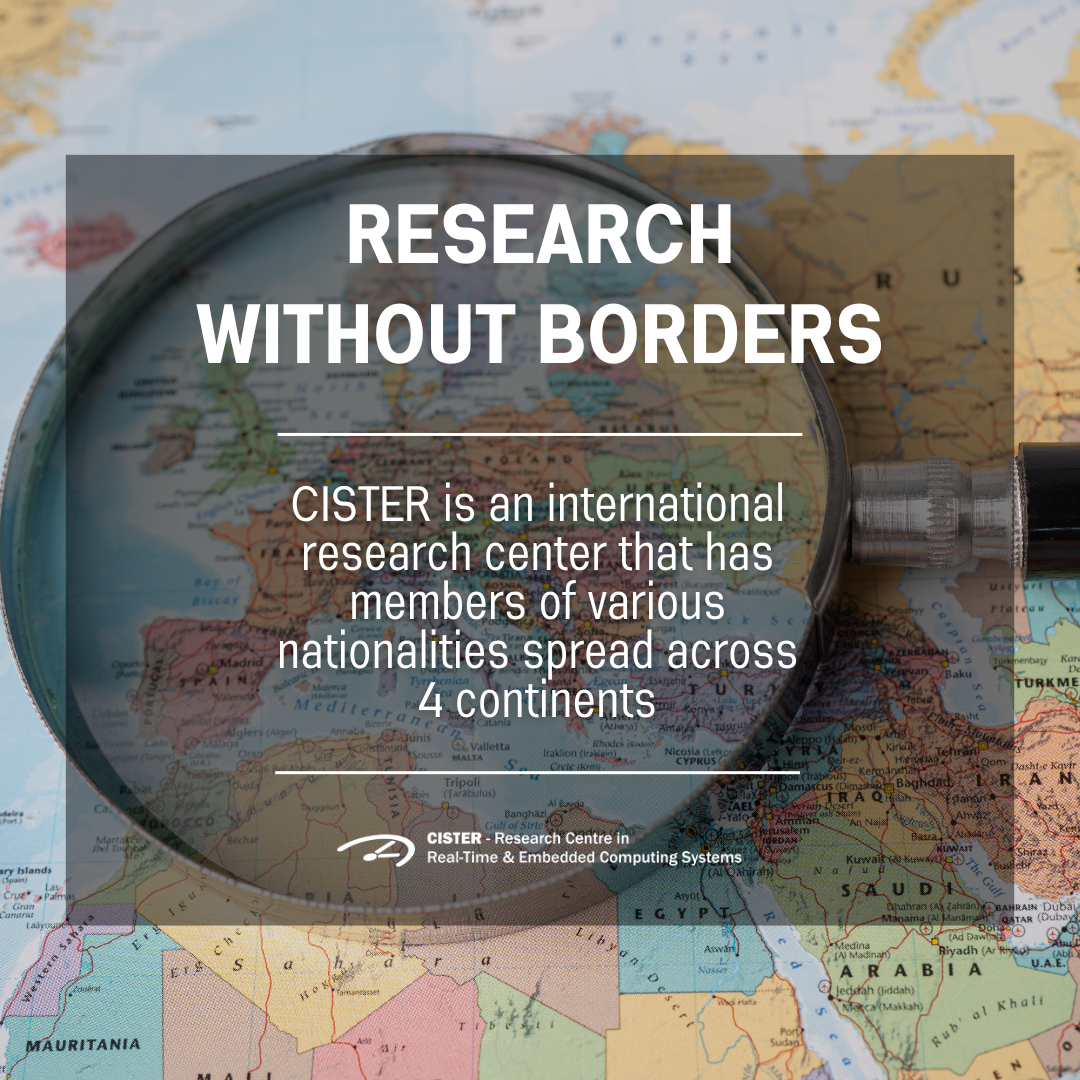 Internationalization is a very important aspect for us, which is why new researchers from different countries with different cultures arrive every year, sharing their knowledge in the field of real-time systems and embedded systems to achieve technological and academic progress.
Internationalization is a very important aspect for us, which is why new researchers from different countries with different cultures arrive every year, sharing their knowledge in the field of real-time systems and embedded systems to achieve technological and academic progress.
Since its creation, CISTER has worked with students, teachers, and researchers from more than 30 different nationalities, with English being the main language of communication, which serves as the basis for a common understanding.
Over the years, we have proudly helped dozens of students from a wide variety of backgrounds to complete their higher education courses. In 2023, 9 of our members, of various nationalities, presented their PhD and MSc thesis.
We currently bring together talented and experienced people from 16 countries, spread across 4 continents: Brazil, Cuba, Mexico, Chile, Sweden, France, Portugal, Greece, Iran, Pakistan, Tunisia, Nigeria, Cameroon, Ghana, India and China. (View map)
In the future, we hope to be able to increase this diversity even further.
Fundamental Research Activities
Autonomous drones revolutionize data collection in challenging environments
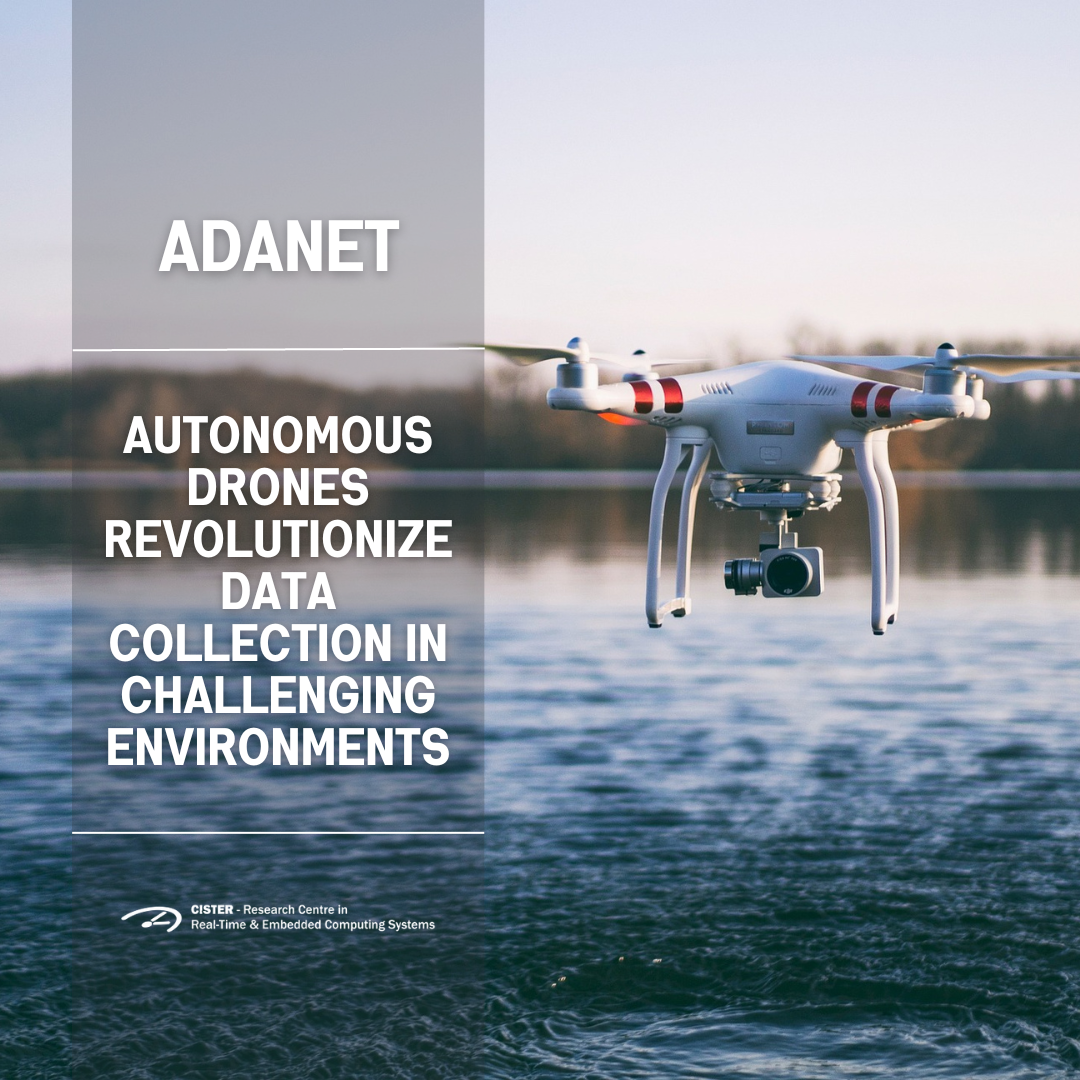 A groundbreaking initiative, ADANET seeks to revolutionize data collection in challenging environments, such as remote or rural areas, through the development of an Autonomous Drones-Assisted IoT Network. This cutting-edge project deploys low-power IoT nodes, harnessing renewable energy sources, and employs autonomous drones for efficient data collection. Technology like this can be especially useful in precision agriculture or disaster-stricken areas. To achieve success, an interdisciplinary team led by seasoned CISTER researchers in collaboration with industry leaders Tekever and AirMind adresses challenges that include optimizing online flight resource allocation in dynamic conditions, guarding against cyber-physical attacks through game-theoretic models, and implementing cooperative flight resource allocation while addressing privacy concerns.
A groundbreaking initiative, ADANET seeks to revolutionize data collection in challenging environments, such as remote or rural areas, through the development of an Autonomous Drones-Assisted IoT Network. This cutting-edge project deploys low-power IoT nodes, harnessing renewable energy sources, and employs autonomous drones for efficient data collection. Technology like this can be especially useful in precision agriculture or disaster-stricken areas. To achieve success, an interdisciplinary team led by seasoned CISTER researchers in collaboration with industry leaders Tekever and AirMind adresses challenges that include optimizing online flight resource allocation in dynamic conditions, guarding against cyber-physical attacks through game-theoretic models, and implementing cooperative flight resource allocation while addressing privacy concerns.
Recent advancements in energy harvesting have empowered Internet-of-Things (IoT) networks to incorporate numerous nodes powered by renewable energy sources. Equipped with solar panels, wind generators, or wireless power receivers, IoT nodes opportunistically charge their batteries. Large-scale data collection in rural and remote areas, where traditional communication infrastructure is lacking, presents challenges. To address this, a project proposes the use of autonomous drones for data collection, especially in scenarios like disaster-stricken areas or smart farming applications.
The ADANET project aims to design a reliable and secure drones-assisted IoT network utilizing a swarm of autonomous drones. Research focuses on developing deep reinforcement learning-based flight resource allocation, an adversarial deep reinforcement learning framework for enhanced security, and an innovative cooperative flight resource allocation scheme using federated learning. It also involves constructing a testbed for operational validation through real-world experiments.
The anticipated outcome is a robust and secure IoT network where a swarm of autonomous drones optimally controls cruise and communication schedules, minimizing data packet loss. The project integrates deep reinforcement learning, federated learning, wireless communication security, and optimization techniques. With international collaboration from academic and industry partners, it has potential to significantly advance drones-assisted wireless systems in Portugal, impacting areas such as 5G, smart farming, package delivery, and emergency medicine.
Led by the Principal Investigator (PI) Dr. Kai Li (CISTER researcher), in collaboration with experts in various domains, the project aims to conduct high-quality research supported by an international academic-industry consortium, including CISTER Research Centre, Laboratory of Artificial Intelligence and Decision Support (LIAAD), National University of Singapore (NUS), University of Houston (UH), Technical University of Berlin (TUB), Tekever Autonomous Systems, and AirMind LLC.
The ADANET initiative tackles three main challenges in developing an Autonomous Drones-Assisted IoT Network:
- Online Flight Resource Allocation Optimization: To address dynamic changes in channel conditions and varying energy levels, the project is exploring reinforcement learning, specifically deep Q-learning, to optimize cruise control and prevent data loss.
- Cyber-Physical Attacks: Recognizing the vulnerability of drones to cyber-physical attacks due to dependence on network state information and employing a game-theoretic model to formulate strategies against adversaries and the drone's reactions to real-time faulty data injection.
- Cooperative Flight Resource Allocation: Privacy concerns and limited backhaul resources pose challenges in transmitting all flight resource allocation information. The approach involves implementing backhaul-aware federated learning for cooperative cruise control, ensuring minimal latency while maintaining privacy.
The project consists of five key tasks, including online flight resource allocation optimization, practical application of adversarial deep reinforcement learning, development of a cooperative flight resource allocation scheme, construction of an experimental testbed for validation, and overall project management and coordination. These efforts aim to overcome these challenges and advance the development of a secure and efficient Autonomous Drones-Assisted IoT Network.
Ultimately, through this initiative, CISTER looks to achieve significant progress in drone-assisted wireless systems, with an impact on key sectors such as 5G, smart agriculture, parcel delivery and emergency medicine.
Achievements in Academia
A new PhD thesis added to CISTER's vast collection
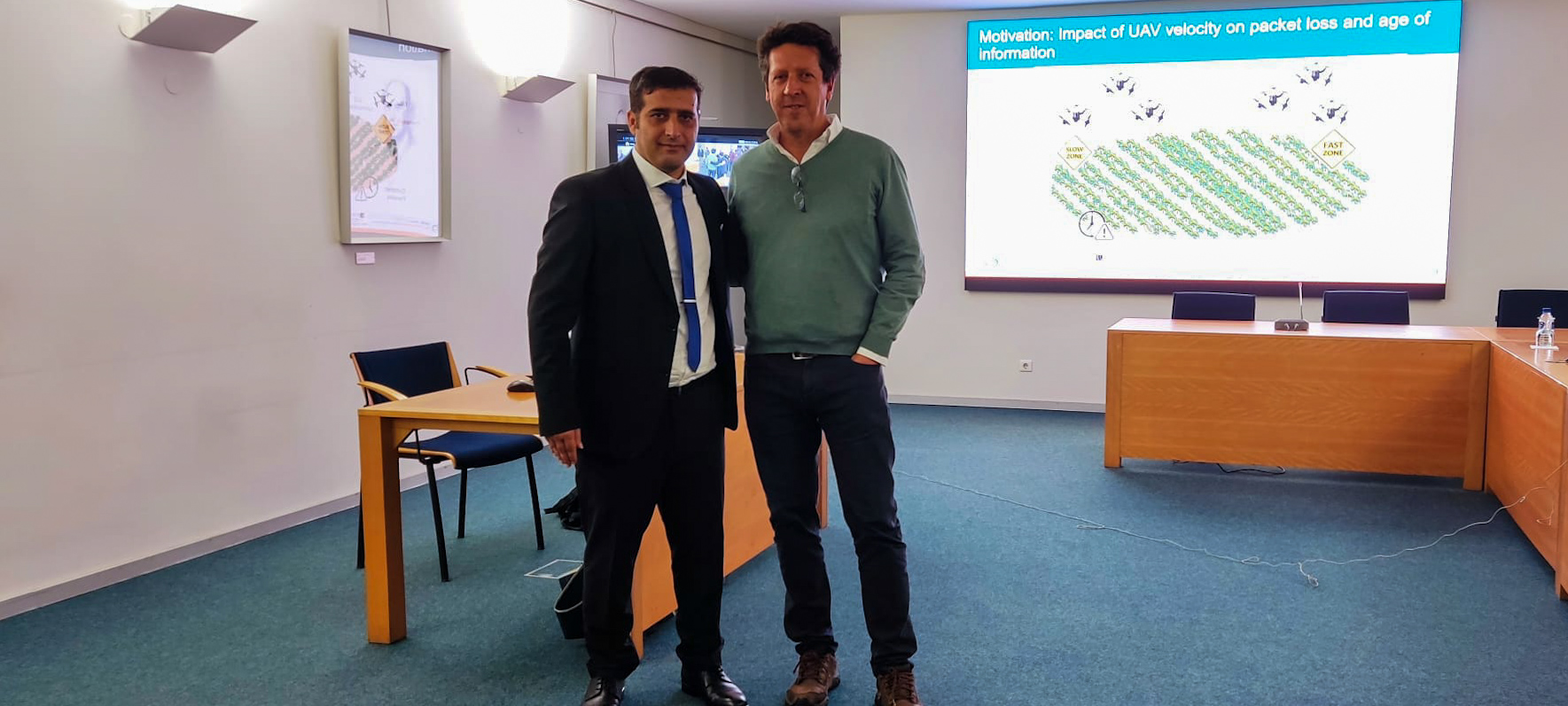
Fundamental Research Activities
Paving the way for autonomous and intelligent mobility
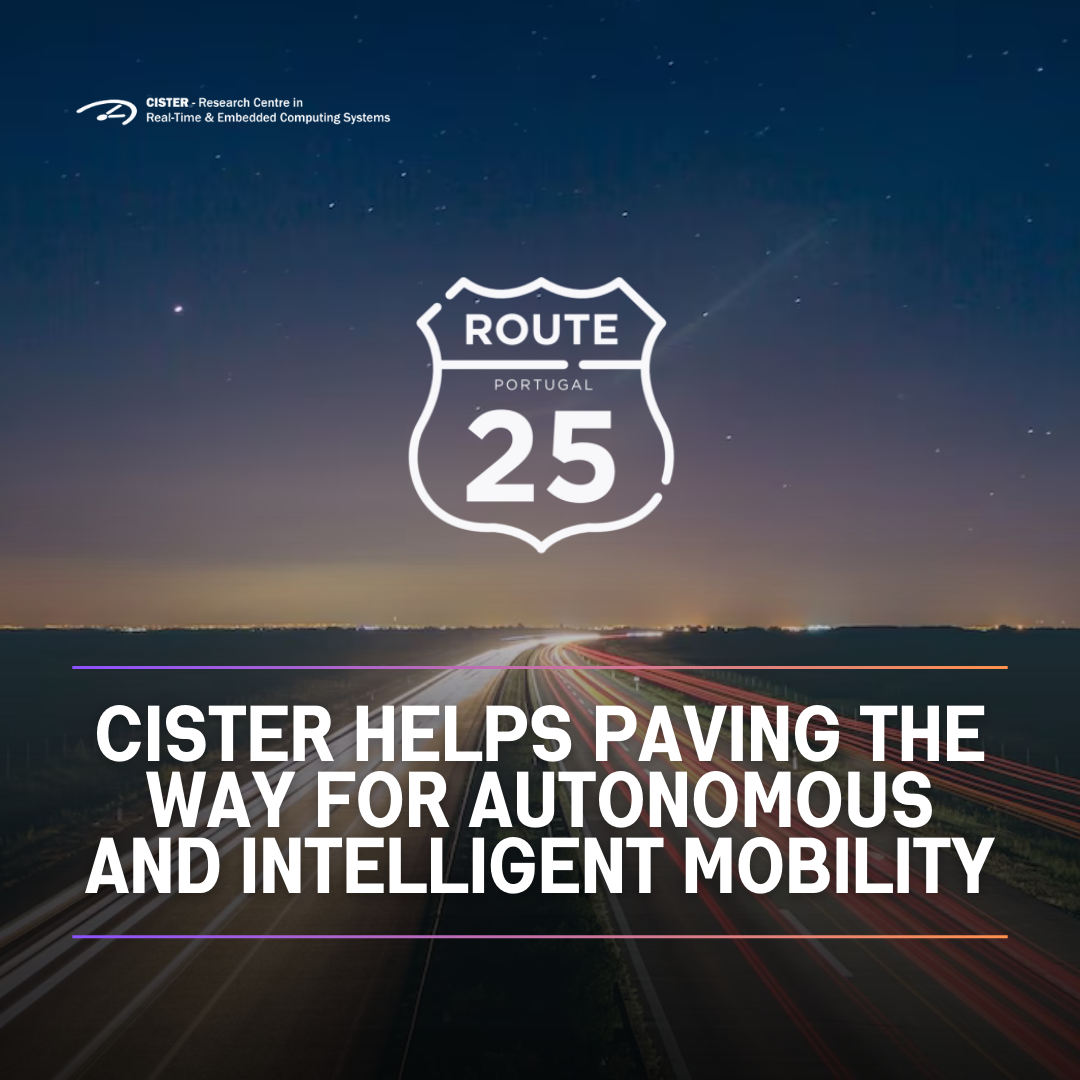 Route 25 is a pioneering project in the rapidly evolving mobility sector, driven by social, technological, and economic shifts. Its focus is to advance convenient, safer, and eco-friendly mobility through vehicle electrification, Cooperative, Connected and Automated Mobility (CCAM) features, and Mobility as a Service (MaaS) models. By uniting more than 20 partners across five key operational areas, Route 25 aims to drive transformative change, environmental progress, and economic growth. CISTER plays an integral part in this project, and its role involves developing a verification framework for next-gen Advanced Driver Assistance Systems (ADAS) and Automated Driving Systems (ADS), enhancing safety and testing techniques, and contributing to the project's success in transitioning to self-driving and AI-driven mobility.
Route 25 is a pioneering project in the rapidly evolving mobility sector, driven by social, technological, and economic shifts. Its focus is to advance convenient, safer, and eco-friendly mobility through vehicle electrification, Cooperative, Connected and Automated Mobility (CCAM) features, and Mobility as a Service (MaaS) models. By uniting more than 20 partners across five key operational areas, Route 25 aims to drive transformative change, environmental progress, and economic growth. CISTER plays an integral part in this project, and its role involves developing a verification framework for next-gen Advanced Driver Assistance Systems (ADAS) and Automated Driving Systems (ADS), enhancing safety and testing techniques, and contributing to the project's success in transitioning to self-driving and AI-driven mobility.
This project seeks to capitalize on global opportunities in the evolving mobility market. This shift, driven by social, technological, and economic factors, is reshaping how people and goods move in various settings. It's clear that future mobility must be more convenient, safer, and eco-friendly, relying on vehicle electrification, Cooperative, Connected and Automated Mobility (CCAM) features and Mobility as a Service (MaaS) business models.
By combining these elements, Route 25 can drive transformative change, environmental progress, and economic growth. This project builds on mature technologies to address market needs. Its aim is to transition businesses from traditional user-operated vehicles to self-driving and AI-driven on-demand mobility, ensuring safer and more data-efficient urban-to-urban travel.
Route 25 also fosters sustainable and inclusive ecosystem growth, benefiting end customers and enhancing sustainability. Its motto is "Bringing Portugal to the forefront of human and sustainable transportation technology," with a goal of leading the mobility sector and contributing to Europe's technological advancement.
The project's operational focus includes five key areas: safe mobility, adaptive connectivity, resilient urban infrastructure, low-carbon intercity mobility, and large-scale demonstrators.
This initiative has 28 partners working together across five areas to promote the Go To Market strategy for their Products, Processes, and Services (PPS) in CCAM. By unifying these efforts under one project with 47 PPS, the consortium maximizes value, accelerates development, and ensures market acceptance through operational demonstrations.
CISTER's role involves developing a verification framework for next-gen Advanced Driver Assistance Systems (ADAS) and Automated Driving Systems (ADS). This framework facilitates integration of hardware and software components, enhancing safety and testing techniques. Some of the tasks in which CISTER is involved are: development of assisted/autonomous driving solutions for complex traffic situations, development of a V&V Platform for ADAS & AD Components, development of an Embedded Hypervisor with nested virtualisation support for enabling future AD vehicles, providing custom specialised training for Industrial Partners, among many others.
Ultimately, through this forward-looking program, CISTER hopes to have a significant impact on the future of mobility.
Achievements in Academia
CISTER delivers another successful PhD thesis defence
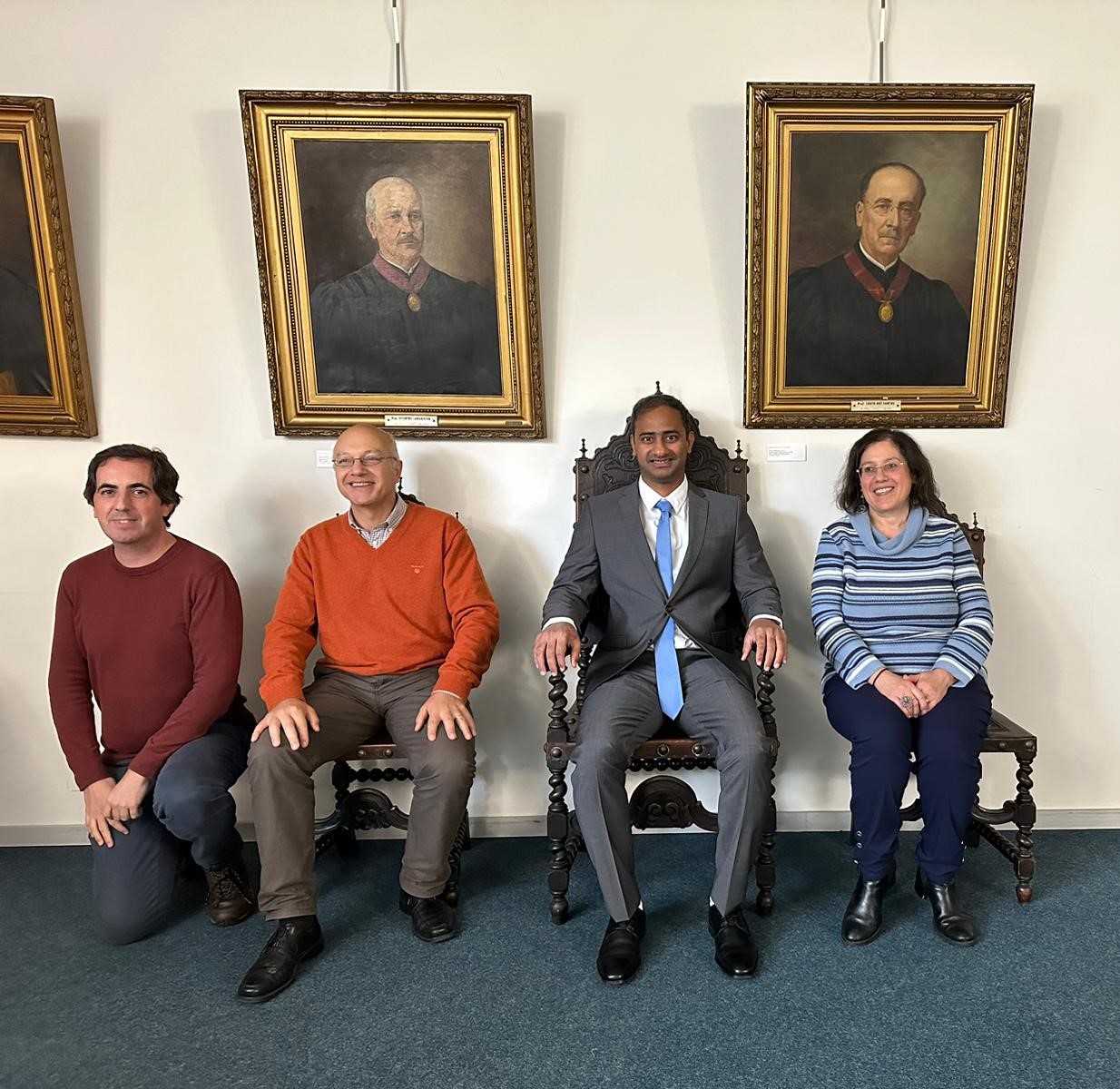 On October 24th, Radha Reddy successfully defended his PhD thesis, developed with the support of CISTER, supervised by Eduardo Tovar, and co-supervised by Luis Almeida and Pedro Miguel Santos, at the Faculty of Engineering of the University of Porto, Portugal.
On October 24th, Radha Reddy successfully defended his PhD thesis, developed with the support of CISTER, supervised by Eduardo Tovar, and co-supervised by Luis Almeida and Pedro Miguel Santos, at the Faculty of Engineering of the University of Porto, Portugal.
His thesis entitled "Synchronous Intelligent Intersections for Sustainable Urban Mobility" emphasises the importance of road intersections in urban transportation and addresses the issues of queue length, waiting delays, and their impacts. Traditional intersection management allows vehicles to enter one road at a time or from opposite lanes, causing unnecessary delays. His thesis introduces a reactive synchronous approach that maximizes intersection access based on arrival time rather than fixed time slots or strict differentiation between human-driven and autonomous vehicles.
The PhD examination committee was composed of Prof. José Nuno Moura Marques Fidalgo, Prof. Thidapat Chantem, associate professor in the Department of Electrical and Computer Engineering at the Virginia Polytechnic Institute and State University, Prof. Samia Saad-Bouzefrane, university professor at the Conservatoire National des Arts et Métiers, Prof. Joaquim José de Castro Ferreira, assistant professor at the Águeda School of Technology and Management (ESTGA-UA) of the University of Aveiro, Prof. Eduardo Manuel Medicis Tovar, coordinating professor, Department of Computer Engineering, Porto School of Engineering, Polytechnic Institute of Porto and Prof. Pedro Alexandre Guimarães Lobo Ferreira Souto, assistant professor, Department of Computer Engineering, Faculty of Engineering, University of Porto.
Mr. Reddy primary research area is the Intelligent Transportation Systems (ITS), particularly intelligent traffic signal control to reduce travel delays, fuel wastage, and associated emissions of air pollutants towards sustainable urban mobility. Mr. Reddy received B.Sc. (2007) and M.Sc. (2009) in Computer Science from SVU and M. Tech (2014) in Computer Science & Engineering from JNTU, India. Then he has two years of teaching experience in Indian institutions. He also has eight years of full-time research experience in CISTER Research Center-Porto, COPELABS-Lisbon, and Inria-Paris. He is also an external collaborator with CEDRIC Labs and CNAM-Paris, since 2013. With his academic and research experience, several national and international conferences and journal papers, including a textbook, have been published.
Achievements in Academia
CISTER adds three new MSc thesis
 Last 10th and 13th October, Márcia Rocha, Pedro Vicente and Gleizielly Alves, three CISTER members and enrolled in the master's degree in Critical Computer Systems Engineering at ISEP , successfully defended their master's thesis.
Last 10th and 13th October, Márcia Rocha, Pedro Vicente and Gleizielly Alves, three CISTER members and enrolled in the master's degree in Critical Computer Systems Engineering at ISEP , successfully defended their master's thesis.
Gleizielly successfully defended her thesis entitled "Authority handover procedure and safety decision strategy in unmanned aerial vehicles".
She has experience in the Industrial Automation field, performing PLC programming and developing Supervisory Control and Data Acquisition (SCADA) and Human-Machine Interface (HMI).
Márcia Rocha, successfully defended her thesis entitled "A WSSL Implementation for Critical Cyber-physical Systems Applications".
She has a bachelor’s degree in Control Automation Engineering (2021) from Instituto Federal de Goiás (IFG) with two years of experience developing Supervisory Systems, HMI and programming PLCs in the field of industrial automation in Brazil. Her main interests are robotics, industrial and residential automation and artificial intelligence.
Both Gleizielly and Márcia defenses were judged by professors Luís Miguel Rosário Da Silva Pinho, David Miguel Ramalho Pereira and Eduardo Manuel Medicis Tovar.
Pedro Vicente, successfully defended his thesis entitled “Deployment of ML Mechanisms for Cybersecurity in Resource-constrained Embedded Systems”.
His defense was judged by professors Luís Miguel Rosário Da Silva Pinho, Pedro Miguel Salgueiro Dos Santos and Sérgio Crisóstomo.
Pedro's main focus is improving computational systems.
CISTER is proud of supporting the development of the work of these three students who obtained excellent grades in their theses.
Fundamental Research Activities
CISTER participates in the construction of innovative national aircraft
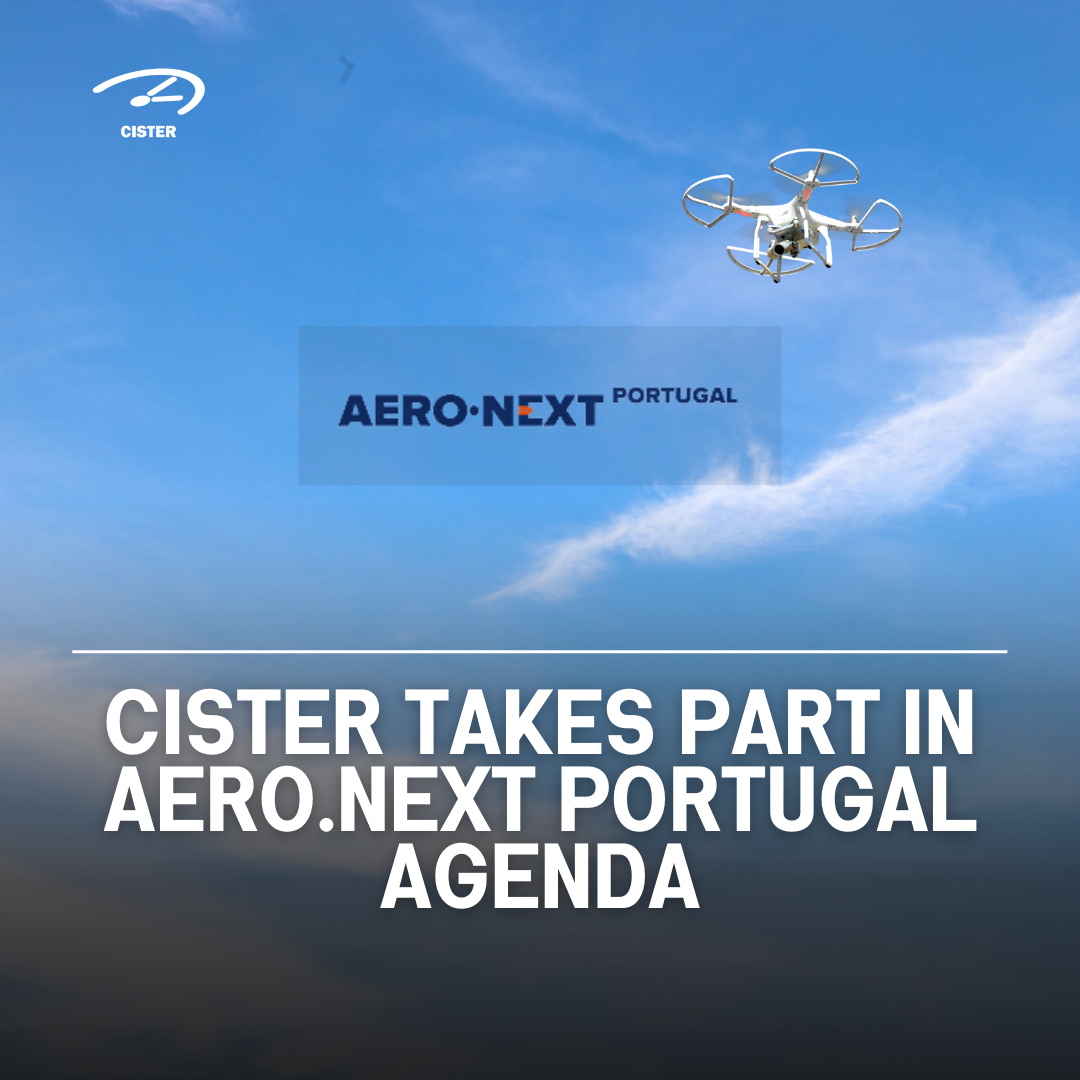 The "Aero.Next Portugal" Agenda comprises four vertical programs and two transversal programs (Workpackages or WPs) that synergize to address strategic aeronautical sector priorities. This agenda empowers the national value chain by expanding its role in designing, developing, manufacturing, and marketing both manned and unmanned aircraft from Portugal, enhancing the country's decision-making capabilities. It aims to consolidate engineering expertise and develop critical mass for operating unmanned aircraft and offering data intelligence services.
The "Aero.Next Portugal" Agenda comprises four vertical programs and two transversal programs (Workpackages or WPs) that synergize to address strategic aeronautical sector priorities. This agenda empowers the national value chain by expanding its role in designing, developing, manufacturing, and marketing both manned and unmanned aircraft from Portugal, enhancing the country's decision-making capabilities. It aims to consolidate engineering expertise and develop critical mass for operating unmanned aircraft and offering data intelligence services.
The four vertical WPs focus on strengthening engineering capabilities for manned (ARL) and unmanned (ARX) aircraft, certifiable systems, and marketable aero-structure engineering. They also target product development and maintenance services for large aircraft using UAS (ILAN VR) and advancing UAS flying platforms, safety components, and integrated digital solutions for advanced air mobility.
Furthermore, the agenda includes two transversal WPs—one for enhancing additive manufacturing (AM) competences in the aeronautical sector and another for managing and disseminating Aero.Next Portugal's results, including new knowledge, products, processes, and services, to ensure smooth execution.
In the "Aero.Next Portugal" agenda, ISEP/CISTER and GMV will collaborate in WP ARX to customize a secure real-time embedded operating system. Additionally, in WP ARL, they will work together on developing the aircraft mission system. The focus will be on specifying a secure real-time on-board operating system based on ARM architecture to meet the demanding information processing needs essential for RPAS mission success.
Achievements in Academia
Jatin Arora successfully defended his PhD dissertation on Resource Contention-aware Multicore Real-Time Systems
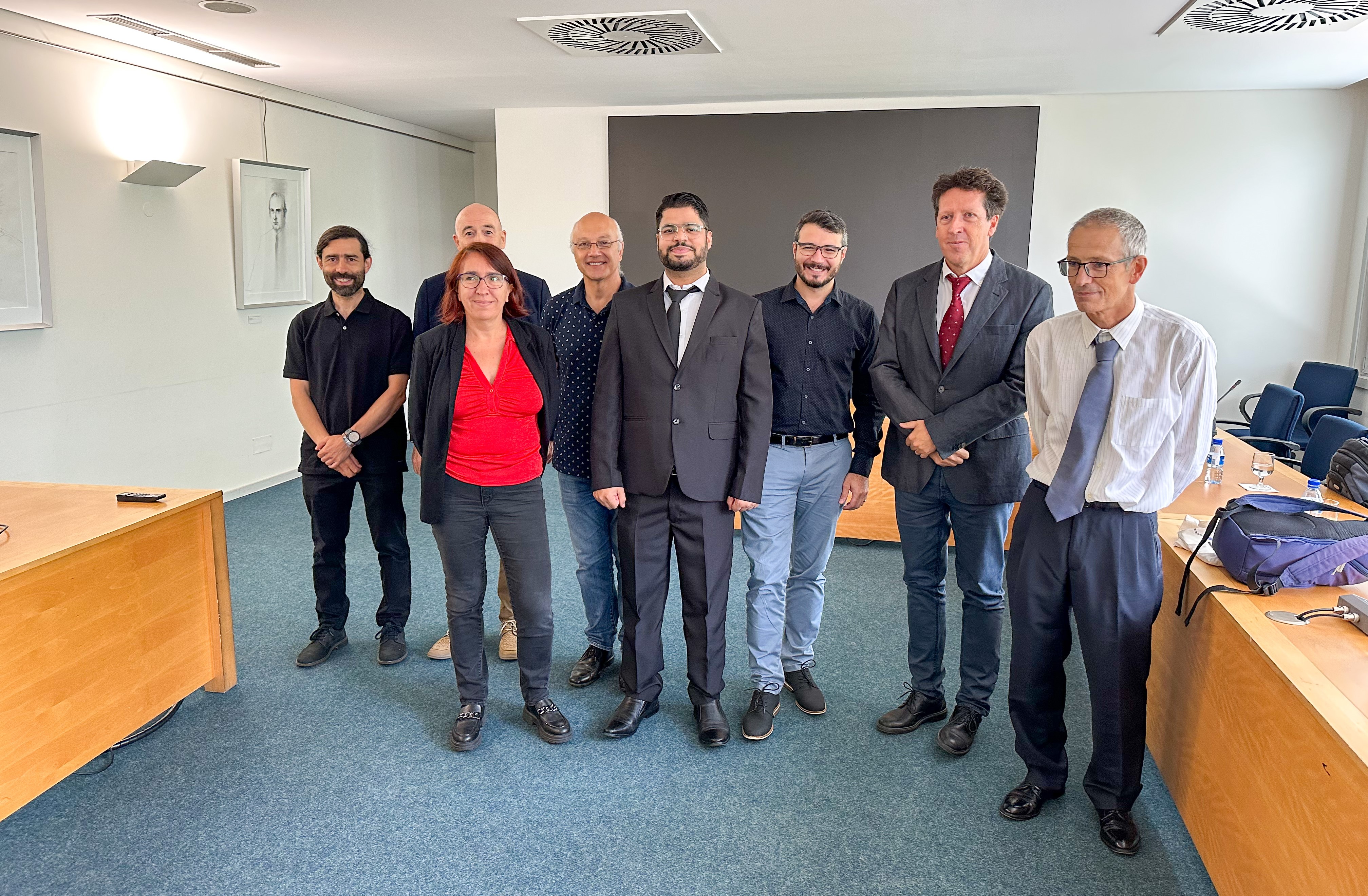
Achievements in Academia
Ênio Filho successfully defended his PhD dissertation on "An Evaluation Framework for Safe Cooperative Vehicle Platooning"
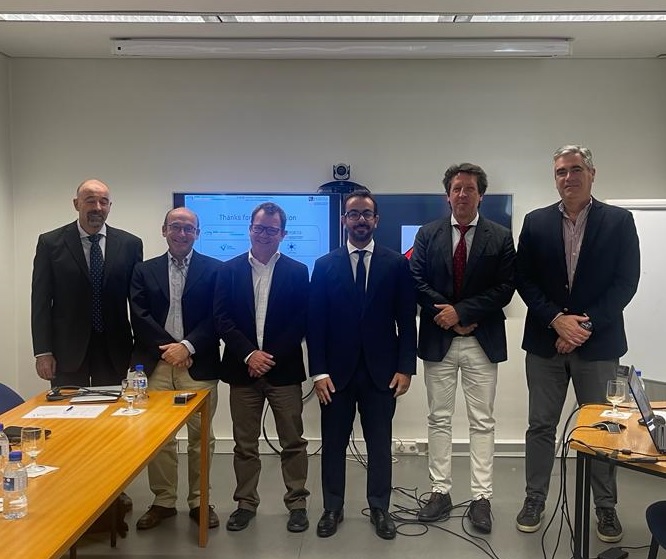
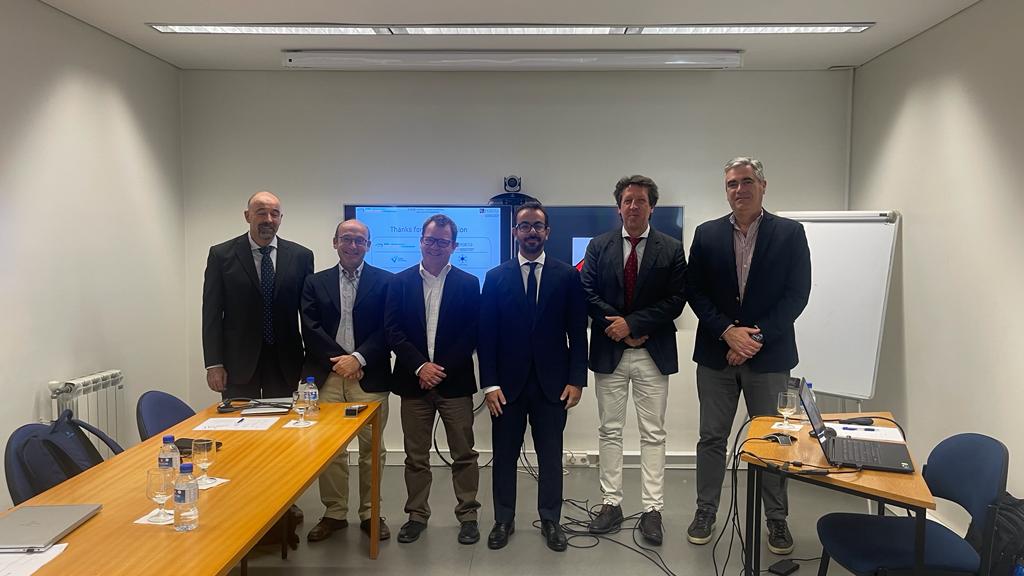 Enio Prates Vasconcelos Filho successfully defended his PhD thesis, supervised by Eduardo Tovar, and co-supervised by Anis Koubaa and Luis Almeida, at the Faculty of Engineering of the University of Porto, Portugal.
Enio Prates Vasconcelos Filho successfully defended his PhD thesis, supervised by Eduardo Tovar, and co-supervised by Anis Koubaa and Luis Almeida, at the Faculty of Engineering of the University of Porto, Portugal.
His thesis entitled "An Evaluation Framework for Safe Cooperative Vehicle Platooning" presents a framework named CopaDrive, aimed at vehicular applications capable of realistically simulating control and communication models. Based on ROS, this framework allows solutions to be developed and validated faster and more efficiently than current models. Its design is composed of the simulation tool, Hardware in the Loop, and the Robotica testbed. Starting from the use case of a Cooperative Vehicle Platooning (Co-VP) system, using this tool, it was possible to present a control solution capable of increasing the size of the platooning, increasing the safety of the maneuvers performed. Furthermore, it was possible to show the efficiency of modifying the message-sending triggers based on the ETSI ITS-G5 communication model.
The PhD examination committee was composed of Prof. Rahul Mangharam, from University of Pennsylvania, USA; Prof. António Casimiro Ferreira da Costa, Departamento de Informática da Faculdade de Ciências da Universidade de Lisboa, Prof. Joaquim José de Castro Ferreira, Escola Superior de Tecnologia e Gestão de Águeda da Universidade de Aveiro and Prof. Paulo José Lopes Machado Portugal, Departamento de Engenharia Eletrotécnica e de Computadores da Faculdade de Engenharia da Universidade do Porto. It was chaired by Prof. José Nuno Moura Marques Fidalgo, Full Professor of the Faculty of Engineering of the University of Porto.
Fundamental Research Activities
PhD Forum Prize at DATE 2023
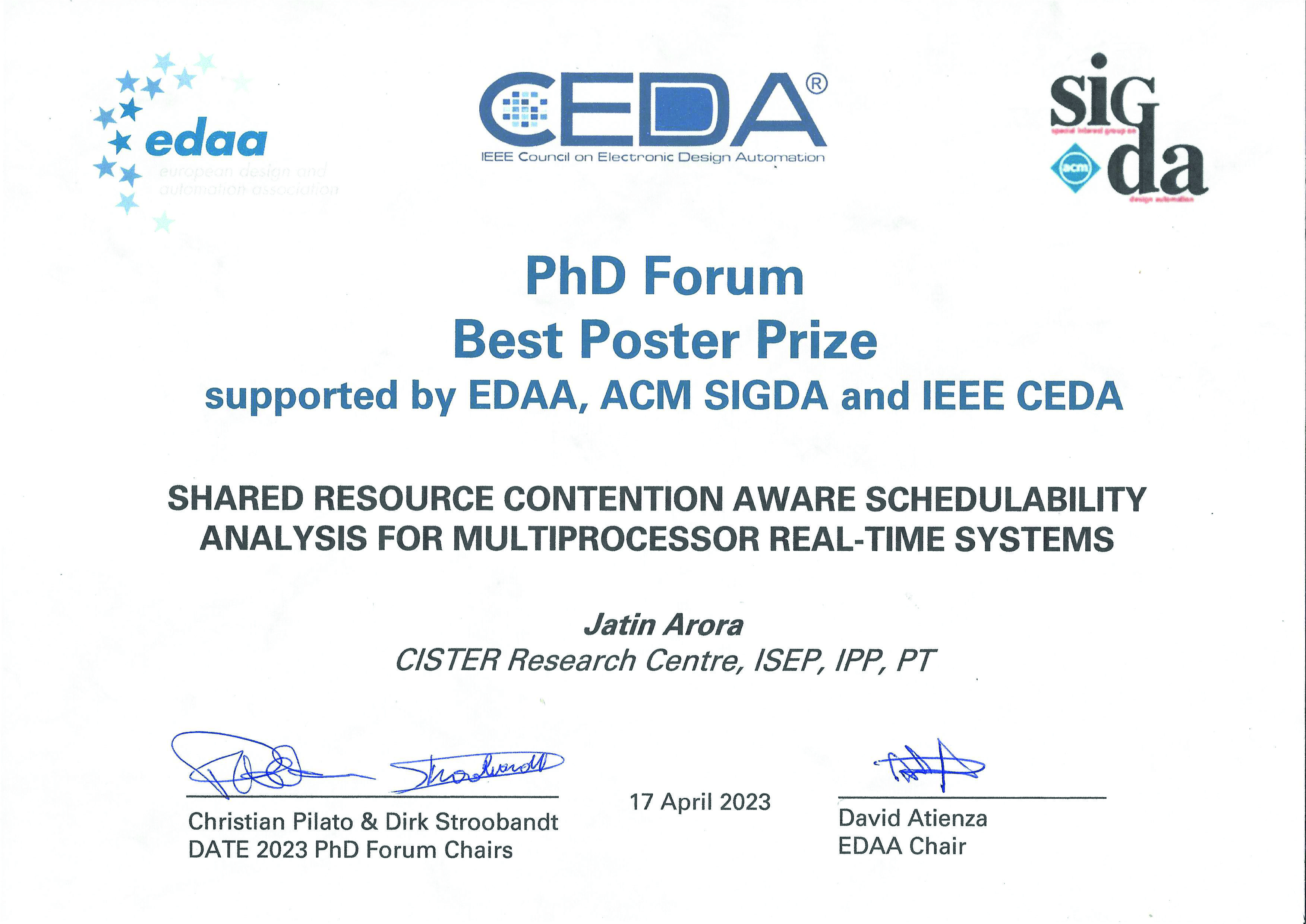
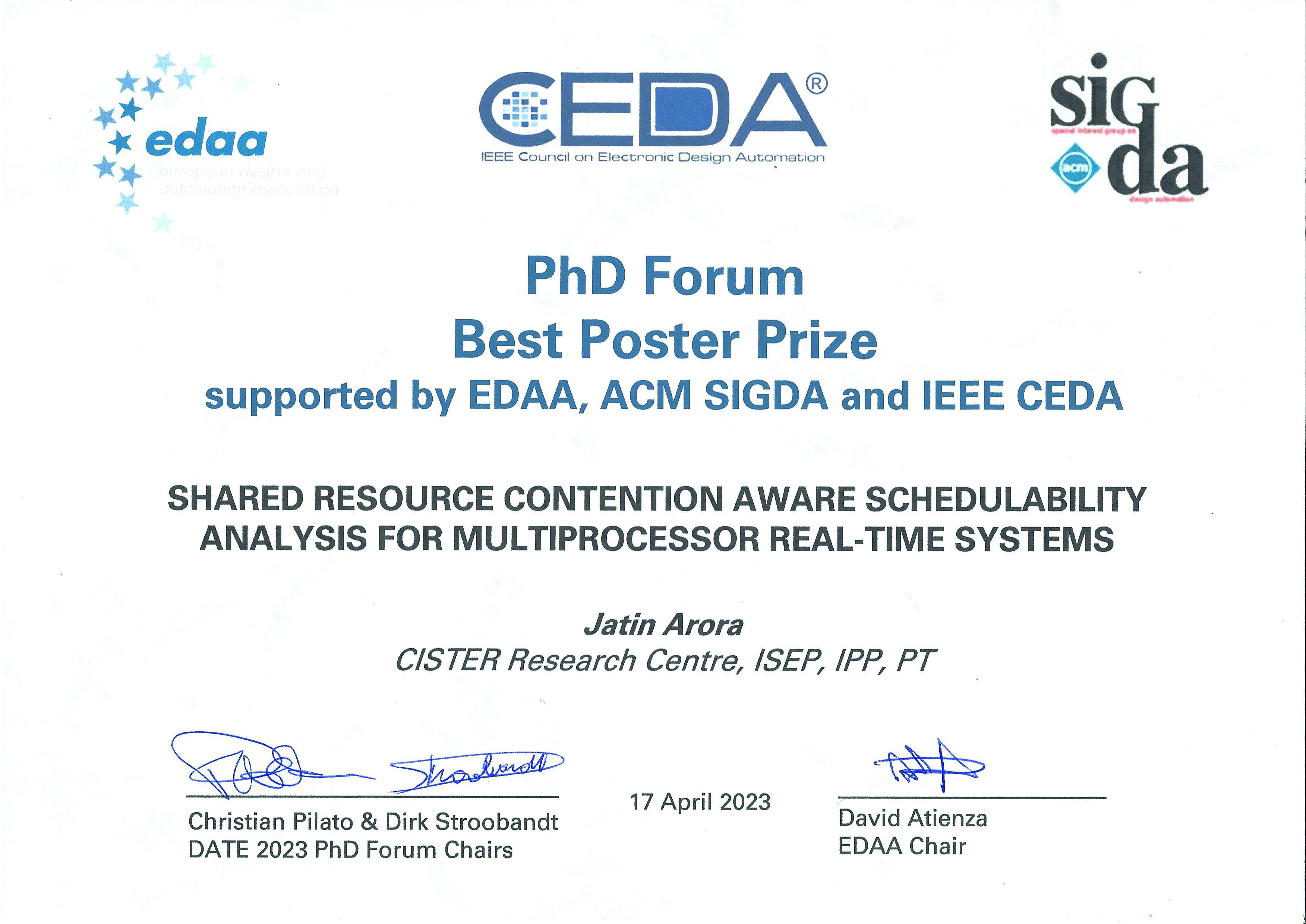 The extended abstract entitled "Shared Resource Contention Aware Schedulability Analysis for Multiprocessor Real-Time Systems" presented by CISTER PhD student Jatin Arora got the "Best Poster Prize" at the PhD Forum of Design, Automation and Test in Europe Conference (DATE) 2023 that took place in Antwerp, Belgium from 17 to 19 April 2023. DATE is a premiere European conference for design, automation & test and this year's edition of DATE attracted more than 900 participants from across the world.
The extended abstract entitled "Shared Resource Contention Aware Schedulability Analysis for Multiprocessor Real-Time Systems" presented by CISTER PhD student Jatin Arora got the "Best Poster Prize" at the PhD Forum of Design, Automation and Test in Europe Conference (DATE) 2023 that took place in Antwerp, Belgium from 17 to 19 April 2023. DATE is a premiere European conference for design, automation & test and this year's edition of DATE attracted more than 900 participants from across the world.
The PhD forum of DATE is a well-known platform for recent PhD graduates/final year PhD students to present their PhD research work to a broader audience. The PhD forum of DATE 2023 featured 46 researchers/final-year PhD students from prestigious organizations across the world. The PhD forum best poster prize is supported by EDAA, ACM SIGDA, and IEEE CEDA. Besides the best poster prize, Jatin is a recipient of the PhD forum travel grant and full registration sponsorship for DATE 2023 under the Young People Programme (YPP).
The extended abstract co-authored by Jatin Arora, Eduardo Tovar, and Cláudio Maia summarizes the major research challenges addressed during Jatin's PhD studies. This recognition sets a relevant milestone in Jatin's PhD studies.
Next Events & Call for Papersmore












